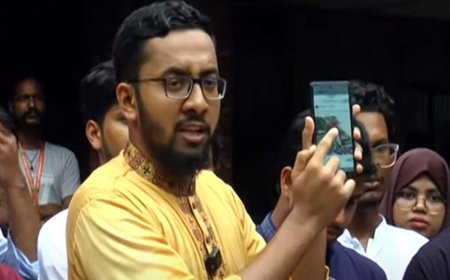Eid Emergency: Over 220,000 Calls Handled by 999 During Eid-ul-Adha Holidays

The National Emergency Service 999 responded to a staggering 220,388 calls from across the country during the nine-day Eid-ul-Adha holiday, from June 5 to June 13. Among them, 15,619 callers received urgent ambulance and fire service assistance, according to an official press release.
The 24/7 emergency response team addressed a wide range of issues, including extortion at cattle markets, on roads and waterways, forced relocation of sacrificial animals, criminal activities by unconsciousness-inducing gangs (locally known as ojan/malam parties), and noise pollution. However, the highest number of service requests—4,102 cases—were related to altercations and physical violence.
According to 999’s internal data, police-related emergency support was provided to 13,831 callers. Ambulance services were dispatched to 993 individuals, while fire assistance was extended to 795. The press release was issued on Sunday, June 15, by Inspector Anwar Sattar, Public Relations Officer of the 999 service.
He shared that, “This Eid, 4,102 people sought help due to altercations. In 1,214 cases, assistance was provided in incidents of illegal confinement, while 1,062 individuals received emergency ambulance support. Another 992 received support in matters related to criminal or terror-related activities.”
Officials at 999 noted that criminal activity typically sees a rise during Eid as people travel more and engage in livestock trading and financial transactions. This naturally results in an increased volume of emergency calls.
During this Eid, 1,271 individuals received assistance for issues including extortion in cattle markets, on roads and waterways, forced redirection of animals to different markets, ojan/malam party threats, and noise pollution.
Speaking to the media, Inspector Anwar Sattar stated, “The highest number of calls this Eid was related to physical altercations. Most disputes stemmed from power struggles or petty causes. We also received calls related to financial disagreements and cases where spouses were forcefully detained. Although we receive hundreds of thousands of calls, a large portion are non-urgent or misdialed, which do not fall under emergency service.”
Earlier, on May 22, a press release signed by Additional DIG (Telecom) Mahiul Islam warned that non-essential calls were delaying critical support to those genuinely in danger. Authorities urged the public to refrain from making unnecessary calls so that emergency services could respond more swiftly.
It is worth noting that under Section 70(1) of the Telecommunication Regulation Act 2001, making nuisance calls is punishable by a fine of BDT 100,000 or six months’ imprisonment. However, 999 has so far refrained from pursuing legal action, opting instead to emphasize public awareness and education.









































































































































































































